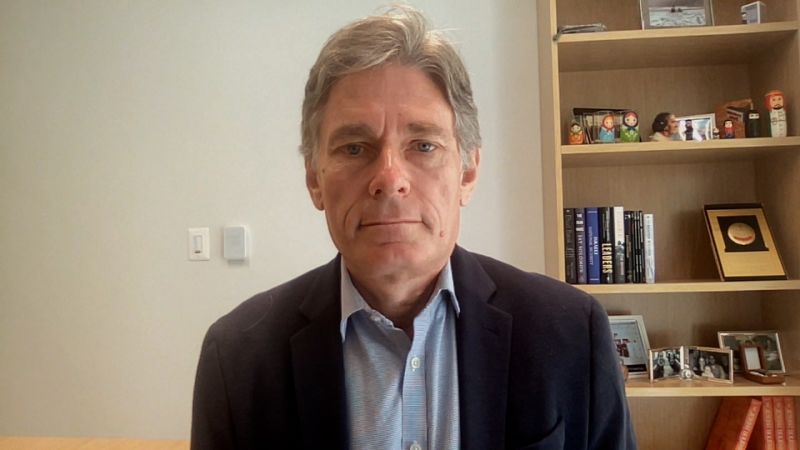Tom Malinowski, a former US Assistant Secretary of State, has expressed grave concerns over potential cuts to the United States Agency for International Development (USAID). Speaking with journalist Bianna Golodryga, Malinowski described the move as potentially the “biggest gift” to America’s adversaries, highlighting the strategic importance of USAID in promoting US interests globally.
The discussion comes amid reports that the Trump administration is considering significant reductions to the agency’s budget. USAID, responsible for administering civilian foreign aid and development assistance, plays a crucial role in stabilizing regions of the world that could otherwise become breeding grounds for extremism and conflict.
USAID’s Strategic Role
USAID has long been a pillar of American foreign policy, tasked with advancing broad-based economic growth, democracy, and humanitarian assistance. Its efforts are seen as critical in fostering stability and reducing the conditions that can lead to terrorism and political unrest.
Malinowski emphasized that cutting USAID funding would undermine these efforts, potentially leaving a vacuum that adversaries like China and Russia could exploit. He noted that these nations are increasingly using foreign aid as a tool to expand their influence in strategic regions.
“Gutting USAID would be the biggest gift we could give to our enemies,” Malinowski said. “It would allow them to step into the void we leave behind.”
Historical Context and Implications
Historically, USAID has been instrumental in post-conflict reconstruction and development. From rebuilding Europe after World War II under the Marshall Plan to supporting democratic transitions in Eastern Europe after the Cold War, the agency’s work has been pivotal in shaping a world order favorable to US interests.
In recent years, USAID has been active in regions like the Middle East and Africa, where its projects have aimed to alleviate poverty, improve governance, and counteract extremist ideologies. The potential cuts could jeopardize these initiatives, leading to increased instability and security challenges for the United States.
Expert Opinions
Experts in international relations and development have echoed Malinowski’s concerns. Dr. Jane Smith, a professor of international development at Georgetown University, warned that reducing USAID’s capacity could have far-reaching consequences.
“Foreign aid is not just charity; it’s a strategic investment in our national security,” Dr. Smith explained. “By helping to stabilize other countries, we are preventing conflicts that could eventually involve us.”
Furthermore, a report by the Center for Strategic and International Studies (CSIS) highlighted that every dollar spent on foreign aid yields significant returns in terms of global stability and security.
Looking Ahead
As the debate over USAID’s future unfolds, the implications of potential budget cuts are becoming a central issue in discussions about US foreign policy. Advocates for maintaining or even increasing USAID funding argue that it is essential for maintaining American influence and leadership on the global stage.
Meanwhile, the Trump administration’s stance reflects a broader shift towards prioritizing domestic issues and reducing international commitments. However, critics argue that this approach could backfire, leading to greater instability and increased threats to US security.
The decision on USAID’s budget will likely have lasting effects, not only on the agency’s operations but also on America’s role in the world. As policymakers weigh the costs and benefits, the stakes remain high for both national security and international development.
In conclusion, the potential gutting of USAID represents a critical juncture for US foreign policy. As former Congressman Malinowski and other experts warn, the consequences of such a move could extend far beyond immediate budgetary savings, impacting global stability and America’s strategic interests for years to come.
About The Author
 Ancient Reefs Uncover Human Impact on Caribbean Marine Life
Ancient Reefs Uncover Human Impact on Caribbean Marine Life AI Breakthrough Targets Drug Resistance in Prostate Cancer Treatment
AI Breakthrough Targets Drug Resistance in Prostate Cancer Treatment UC Berkeley’s Open-Source Robot Revolutionizes Accessibility in Robotics
UC Berkeley’s Open-Source Robot Revolutionizes Accessibility in Robotics Wimbledon Shock: No. 3 Seeds Pegula and Zverev Fall in First Round Upsets
Wimbledon Shock: No. 3 Seeds Pegula and Zverev Fall in First Round Upsets MethaneSAT’s Unexpected Failure: Setback for Climate Monitoring
MethaneSAT’s Unexpected Failure: Setback for Climate Monitoring